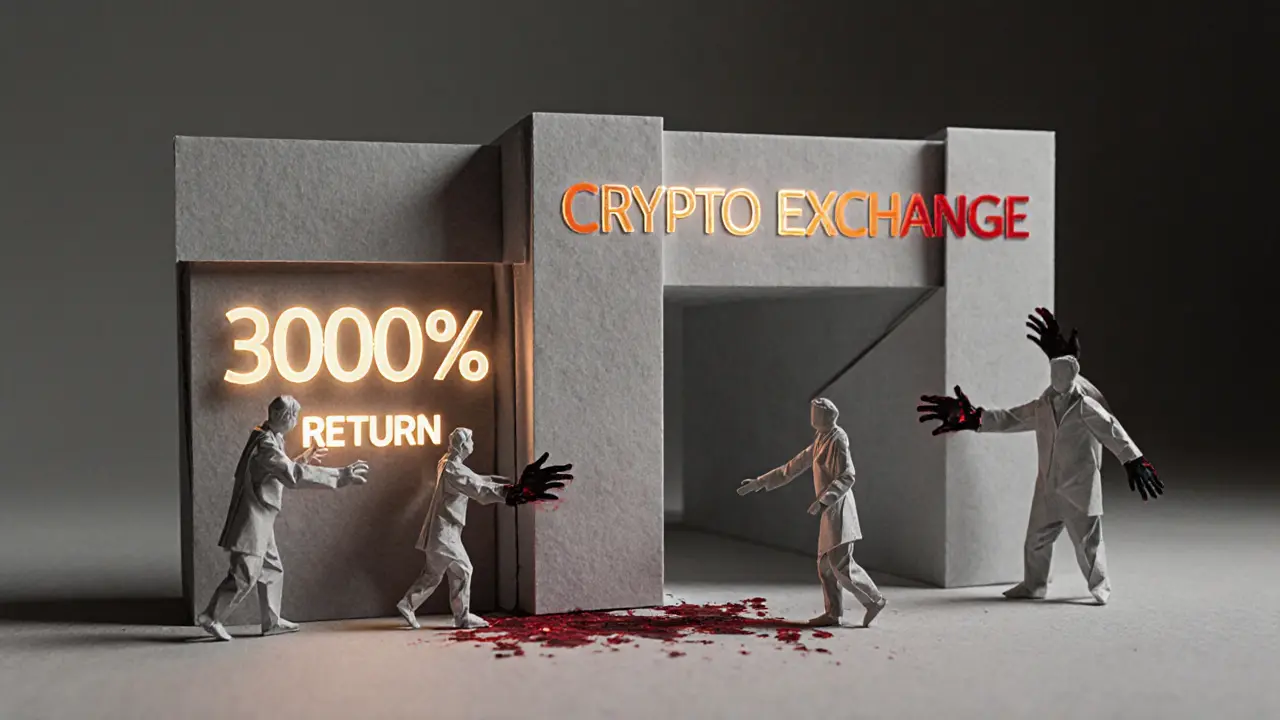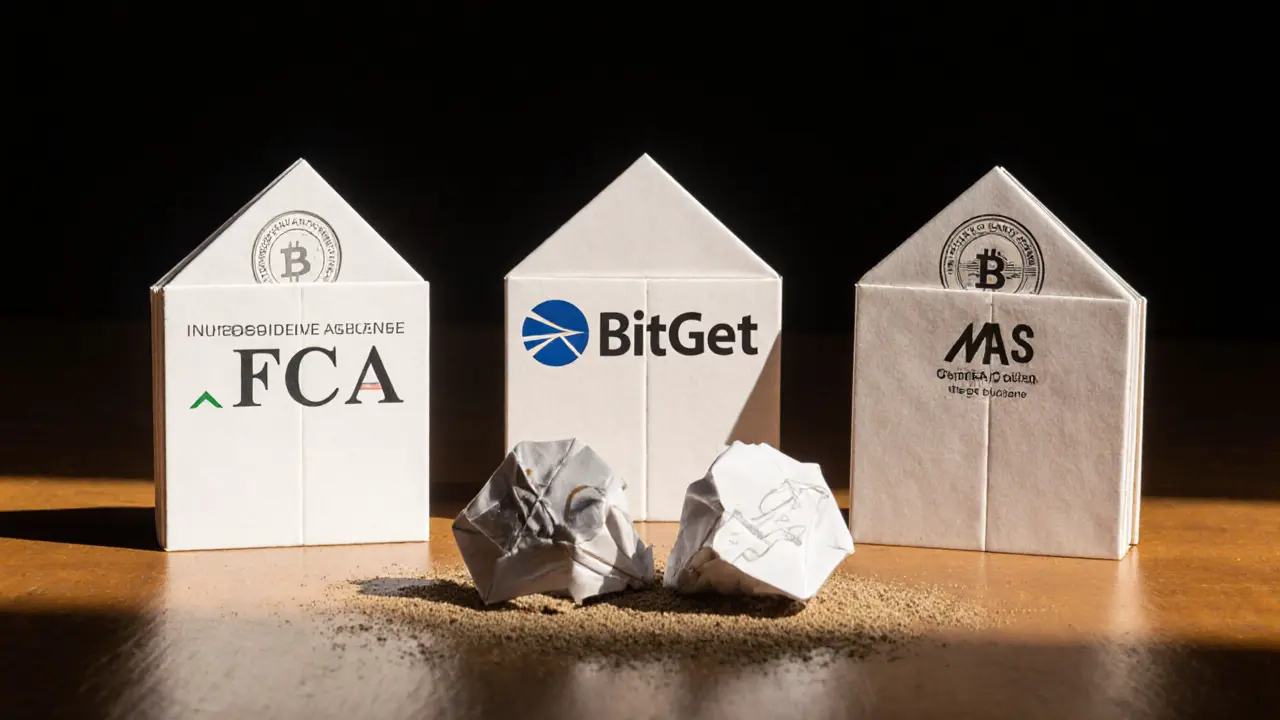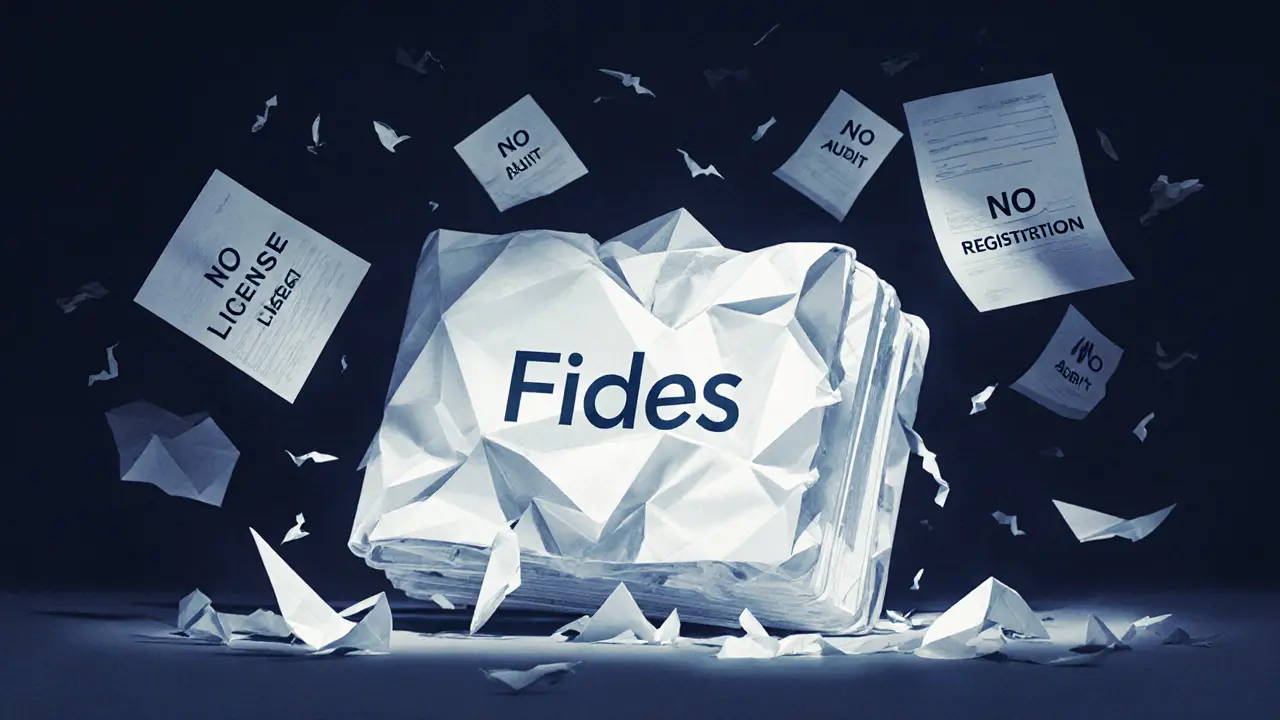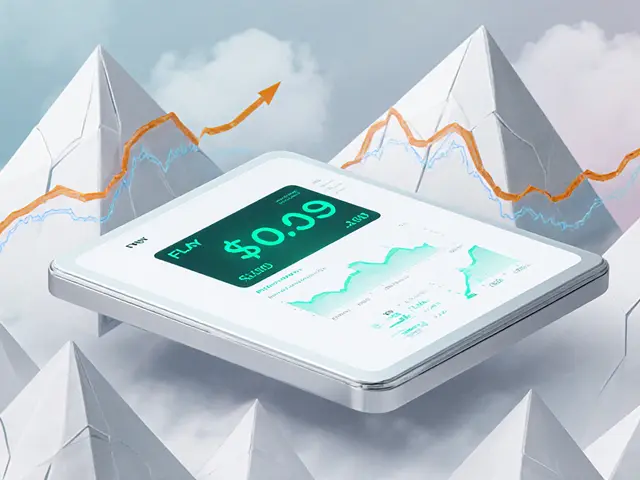Crypto Exchange Verification Tool
Verify a Crypto Exchange
Check if an exchange meets legitimate standards before depositing funds.
There’s no verified Fides crypto exchange operating in 2025. Not on any official regulatory list. Not on CoinMarketCap, CoinGecko, or any major crypto directory. Not in any credible security audit report. If you’ve seen ads for "Fides" promising high yields, low fees, or exclusive tokens, you’re likely looking at a scam.
Why You Won’t Find Fides on Any Trusted List
Crypto exchanges don’t just pop up overnight. Legit platforms get audited, licensed, and listed. They publish their company registration numbers, physical addresses, and compliance teams. They’re transparent about who runs them. Fides doesn’t do any of that.Search for "Fides crypto exchange" on Google, and you’ll get a mix of forum posts from confused users, fake YouTube videos with stock footage of trading screens, and landing pages with stock photos of smiling people holding phones. None of them link to a real company. No LinkedIn profiles. No registered business in the UK, US, EU, Singapore, or New Zealand. No ASIC, FCA, or FinCEN registration. That’s not a startup-it’s a red flag.
How Scams Like Fides Trick People
These fake exchanges don’t need to be fancy. They just need to look real enough to get your money. Here’s how they do it:- They copy the design of real exchanges like Binance or Kraken, changing just the logo and name.
- They use fake testimonials: "I made 300% in 2 weeks with Fides!" - posted by bots or paid actors.
- They offer "limited-time bonuses" - deposit $500, get $100 free. The bonus? It’s never real. You can’t withdraw it.
- They lock your funds behind impossible withdrawal conditions: "Complete 5 trades first," or "Verify your ID with a video call (we’ll never answer)."
Once you deposit, the platform disappears. Or worse - it lets you withdraw a small amount to build trust, then vanishes when you try to pull out your real money. This isn’t speculation. It’s a pattern. The U.S. FTC reported over 1,200 crypto scam cases in 2024, with losses totaling $1.3 billion. Many of them used fake names like Fides, CryptoVault, or BitPulse.

What Real Crypto Exchanges Look Like
If you’re looking for a safe place to trade, here’s what to check:- Regulation: Does it say which government body oversees it? Look for licenses like FCA (UK), MAS (Singapore), or NYDFS (New York).
- Audits: Does it publish third-party security audits from firms like CertiK or PeckShield? Real exchanges do.
- Transparency: Can you find the CEO’s name? The legal address? The customer support email that actually replies?
- Community: Are there active discussions on Reddit, Twitter, or Discord from real users? Or just bots posting the same message?
For example, Kraken is registered with FinCEN and has been audited by KPMG. Coinbase is licensed in 50 U.S. states. Even smaller platforms like Bitstamp or Bybit publish their reserve proofs and compliance reports. Fides does none of this.
Where to Find Legit Alternatives
If you’re in New Zealand, you have options that are legal and safe:- Independent Reserve - Based in Auckland, licensed by AUSTRAC, supports NZD deposits.
- Bitget - Regulated in Malta, offers spot and futures trading with cold storage.
- CoinSpot - Australian-based, one of the largest in the region, with 24/7 support.
All three have public company details, verified customer reviews, and clear fee structures. None ask you to send crypto to an unknown wallet address with a promise of "double your money."

How to Protect Yourself
Here’s a quick checklist before you deposit anything:- Search the exchange name + "scam" on Google. If you see more than 3 results warning about it, walk away.
- Check if it’s listed on CoinGecko or CoinMarketCap. If it’s not there, it’s not real.
- Look up the domain registration. Use whois.domaintools.com. If it was registered last month and the owner is hidden, that’s a red flag.
- Try to contact support with a simple question. If they don’t reply in 48 hours, or reply with copy-pasted gibberish, it’s fake.
- Never send crypto to a wallet address you didn’t generate yourself on a verified platform.
Real exchanges don’t need to chase you. They don’t need to promise unrealistic returns. They build trust over years. Fides? It doesn’t even have a track record - because it doesn’t exist.
What Happens If You’ve Already Lost Money to Fides
If you’ve sent funds to Fides, stop immediately. Don’t send more. Don’t fall for "recovery services" that promise to get your money back for a fee - those are scams too.Report it:
- In New Zealand: File a report with the Commerce Commission.
- In the U.S.: Report to the FTC at reportfraud.ftc.gov.
- For crypto-specific fraud: Use the IC3 (Internet Crime Complaint Center) at ic3.gov.
Recovery is rare, but reporting helps authorities track patterns and shut down these operations before they hurt more people.
Is Fides crypto exchange real?
No, Fides crypto exchange is not real. It does not appear on any official crypto platform lists, regulatory databases, or security audit reports. All available evidence points to it being a scam designed to steal user funds.
Why can’t I find Fides on CoinMarketCap or CoinGecko?
Legitimate crypto exchanges are listed on CoinMarketCap and CoinGecko after meeting strict criteria, including transparency, security audits, and regulatory compliance. Fides doesn’t meet any of these standards, which is why it’s not listed. Its absence is a major red flag.
Can I trust Fides if it has good reviews?
Fake reviews are common in crypto scams. Many "positive" reviews are written by bots, paid actors, or copied from real exchanges. Look for reviews on independent forums like Reddit or Trustpilot - if there are no real user experiences, it’s a sign the platform isn’t legitimate.
What should I do if I deposited money into Fides?
Stop all activity immediately. Do not send more funds. Report the scam to your local financial regulator (like the Commerce Commission in New Zealand) and the FTC or IC3 if you’re in the U.S. Avoid "recovery firms" - they’re often scams themselves. Recovery is unlikely, but reporting helps prevent others from being targeted.
Are there any safe crypto exchanges in New Zealand?
Yes. Independent Reserve is a New Zealand-based exchange licensed by AUSTRAC. Other trusted options include Bitget and CoinSpot, both regulated in international jurisdictions and widely used by Kiwi traders. Always choose platforms with public licensing, clear contact info, and verified security audits.




